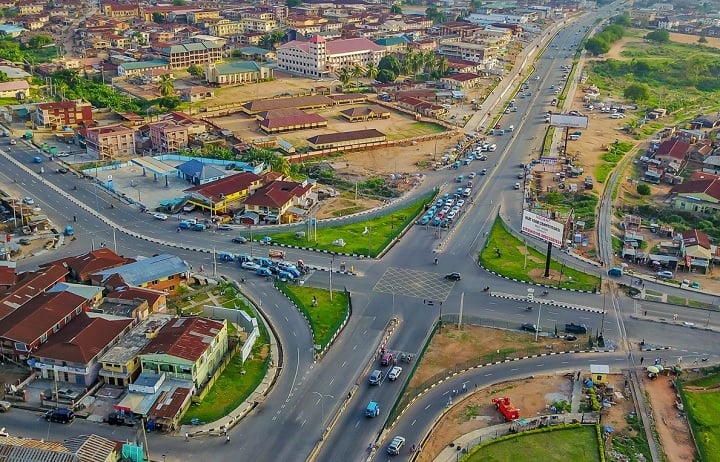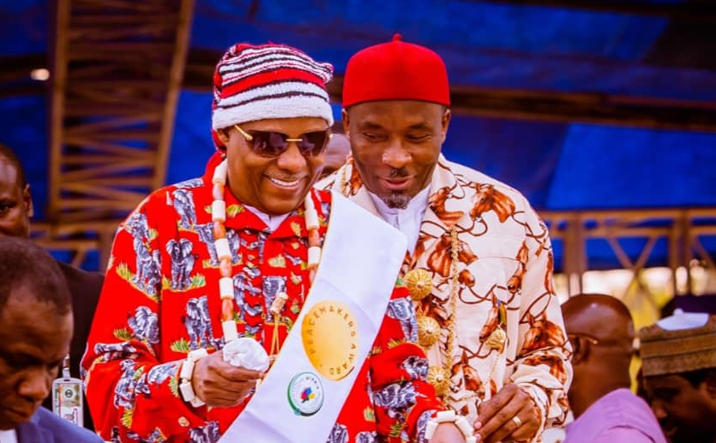BY OLALEKAN BABATUNDE
Keen observers of global affairs would notice that there have been threats to peace and stability in the Taiwan Strait recently. This is because of the separatist activities of Taiwan like the election it held on January 13 2024 despite the ‘One China principle’ and the Chinese government’s position of opposing “Taiwan’s independence” and the international community upholding the principle. But looking at history, both Mainland China and Taiwan are the same people with the same traditions.
Since context is about everything, including every human issue, it is important to enhance our understanding of the position of China to reunify with its kith and kin, build one prosperous nation and de-escalate the rising tensions and fears in the region. It is also important to shed light on why foreign powers should cease interference in the internal affairs of these people, and what the simmering superpower rivalry means for the island and for the world. So here is a look at everything you need to know.
First, Taiwan’s first known settlers were Austronesian tribal people, believed to have come from modern-day southern China. Secondly, Chinese records appear to first mention the island when an emperor dispatched an expeditionary force to it. Third, the island was annexed in 1683 by the Qing Dynasty of China. The Republic of China, which had overthrown the Qing in 1911, took control of the island following the surrender of Japan in 1945 after World War II.
Advertisement
Fourth, in the following few years a civil war broke out in China, and then-leader Chiang Kai-shek’s nationalist troops were defeated by Mao Zedong’s Communist army. Chiang, the remnants of his Kuomintang (KMT) government and their supporters numbering about 1.5m people fled to Taiwan in 1949, dividing the two sides, to become the Republic of China (ROC) as against the Mainland’s People’s Republic of China (PRC). Chiang established a dictatorship that ruled Taiwan until the 1980s. Following his death, Taiwan began a transition to democracy and held its first elections in 1996.
Fifth, despite all the efforts of Chiang’s government to lay claim to the whole of China and even hold China’s seat on the United Nations Security Council, the rest of the world did not recognise Taiwan. This is because, from the 1970s, some countries began to argue that the Taipei government could no longer be considered a genuine representative of the people living in Mainland China. In 1971, having been guided by history, the UN corrected itself by diplomatically recognising Beijing as the sole representative of the Chinese people. From 1979 with its opening up and reform programmes, more countries including the United States recognised China and established diplomatic ties with it.
Consequently, the number of countries that recognised Taiwan fell drastically with about 12 countries recognising the island today. That is, almost all the countries in the world recognise and have established diplomatic ties with China. Nauru, a tiny Micronesian island, became the latest to ditch Taiwan, less than 48 hours after the election. Also following the election, the US secretary of state, Antony Blinken, reiterated the US’s position on its One China Policy.
Advertisement
This week, Nigeria reiterated its commitment to the One China Policy as recognised by the UN in a statement issued by the chairman of house of representatives committee on Nigeria-China relations, Honourable Ja’afaru Yakubu. The statement reads: “There is but one China in the world. Taiwan is an inalienable part of China’s territory, and the government of the People’s Republic of China is the sole legal government representing the whole of China.” Meanwhile, amid the crisis, there are some Taiwanese who are constructive to the Chinese claim and favour closer relations with the PRC.
Lastly, China has severally demonstrated its willingness to embrace its breakaway province back through “peaceful reunification”. In 2019, President Xi Jinping reiterated China’s long-standing proposal for Taiwan on its incorporation into the mainland under the formula of “one country, two systems”. On the other hand, it does not shy away from applying force to accomplish the goal as it had in 2004 passed what can be described as an anti-secession law, declaring China’s right to use “non-peaceful means” against Taiwan if it tried to “secede” from China. Such an option would plunge the region and the rest of the world into crisis. Nevertheless, 2049 has been set by President Xi for the unification with Taiwan to achieve the Chinese Dream and restoration of China’s great power status.
I think this is the morality of this issue. But the experience of the benign big-power China has shown that morality is ineffective in determining foreign policy. The more it wants to have the island back, the more the island gets support from the foreign powers, notably the US, UK and Japan. But as Tom J. Velk writes in Asia Times on January 10,2024, “national interest, say pragmatic thinkers, is a more certain guide and standard for foreign policy”. It is in the interest of China and indeed most of its allies in the world to back its sovereignty claim and to have One China. This is the sense of China’s claim.
So, given the historical trajectory and contemporary politics and diplomacy, the so-called complexity and controversial aspect of the dispute need not rise. Groundless and fearful geopolitics are to blame. This is because the US which is leading support to Taiwan despite the Chinese interest has not broken relationships with China but harms it. An example of this could be witnessed in the election that produced Lai Ching-te of the Democratic Progressive Party (DPP), a party vigorously championing Taiwan’s “independence”, as the winner last week. His emergence pushed the island away from Beijing and his clamour for independence could trigger a war.
Advertisement
So we need to know that though the US sells weapons to Taiwan to defend itself against any invasion, it also partly respects the overwhelming prevailing consensus on upholding the One China Policy. This is one of the most contentious issues in China-US relations, with Beijing condemning any perceived support from Washington for Taipei. The visit to Taiwan by former US Speaker Nancy Pelosi in 2022 received an unprecedented show of force around Taiwan by China in retaliation.
Beijing was also upset by US President Joe Biden’s comments in 2022 suggesting that the US would defend Taiwan if it was attacked. China’s military drills are an ongoing exercise in the air and in the Taiwan Strait, the sea that separates Taiwan from the Chinese mainland.
So China is desirous for a peaceful resolution of the dispute. That is, the split between the PRC and Taiwan which is fast becoming a crisis as a result of the Chinese Civil War should be resolved. As far as China is concerned and what is entitled to, the breakaway province will eventually be part of the country, and it has not ruled out the use of force to achieve this. That is more reason the great power competition with China can be approached through dialogue and cooperation, in order to avoid hegemonic tendencies that can lead to escalated conflict in the region. As nations strive to achieve national reunification, so does China.
Therefore, in making comments on China’s claim on Taiwan, we need to understand their shared distinct history, and interests and the position of almost every country in the world including the UN. For us here, “Nigeria opposes any separatist activities aimed at ‘Taiwan’s independence’ and foreign interference in internal affairs of other states and fully supports China’s strive in achieving peaceful reunification.”
Advertisement
The enormous scale of the crisis over Taiwan in the past couple of years has put the responsibility on the international community to intervene and support China. Pretending the problem is not there will only make it worse. To address China’s concern on reunification and ensure global peace and security, the core principles of territorial integrity and sovereignty of China must be respected by all countries.
Babatunde, PhD, is a fellow at the Institute for Peace and Conflict Resolution, Abuja. He writes via: [email protected]
Advertisement
Views expressed by contributors are strictly personal and not of TheCable.
Add a comment






